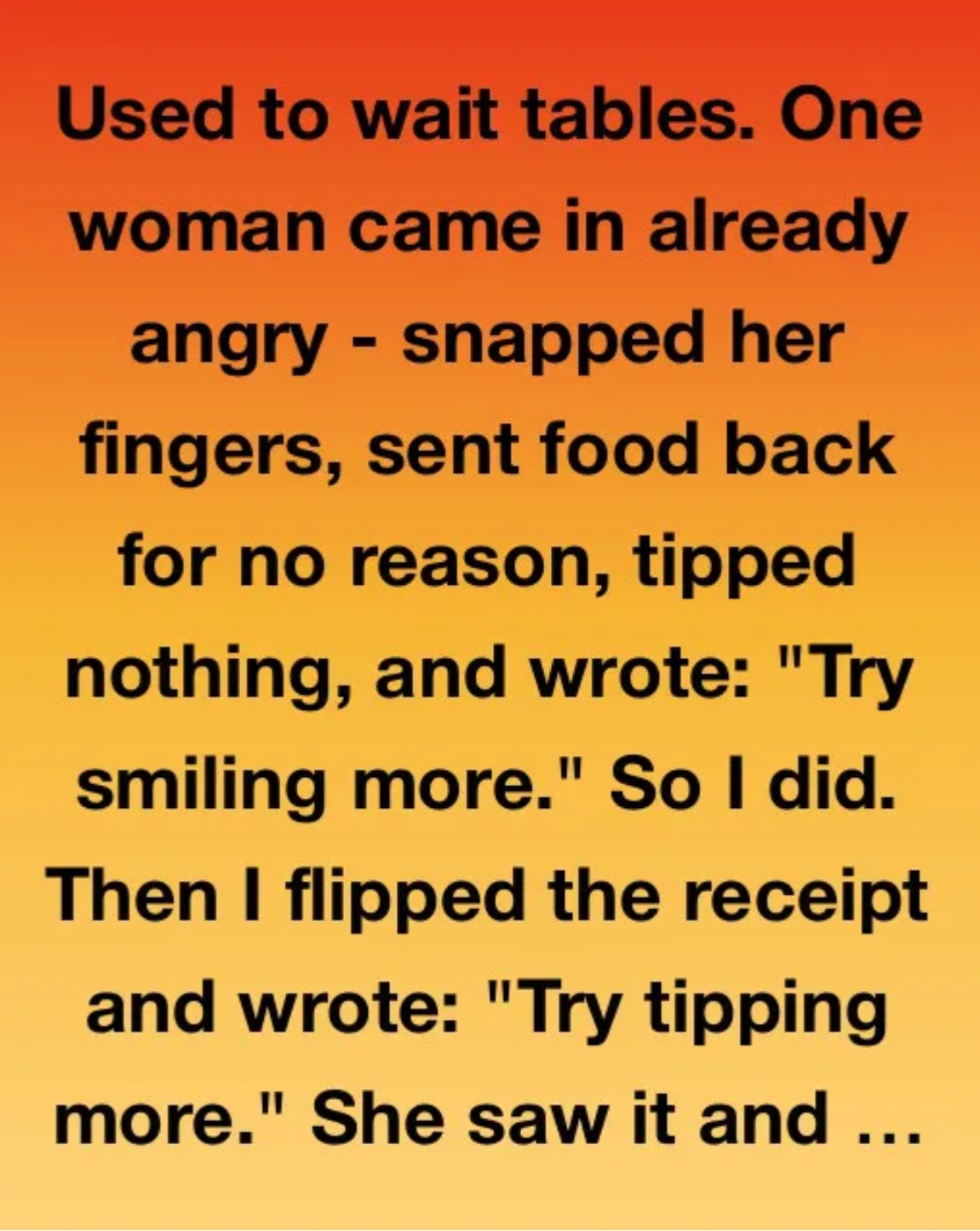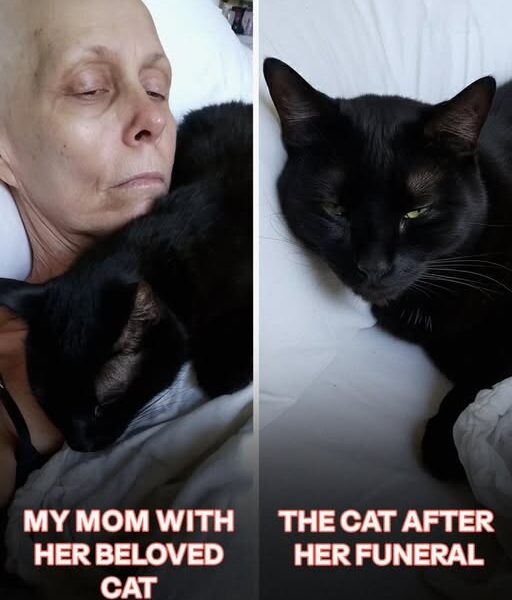Working in a restaurant isn’t just about carrying trays and refilling drinks — it’s about navigating people. Some customers are wonderful, treating you like family and leaving kind words with their tips. Others? Not so much. Over the years, I’ve learned to expect everything from heartfelt gratitude to outright hostility. But one night in particular burned itself into my memory, not because of how badly it started, but because of how unexpectedly it ended.
It was a Friday night, the kind of night when the restaurant feels like it’s bursting at the seams. Every table was full, the kitchen was slammed, and my legs already ached from weaving in and out of the maze of chairs. I’d been smiling all night, even as sweat trickled down my back. Then she walked in.
From the moment she sat down, the energy at her table was heavy. She snapped her fingers at me before I’d even had the chance to greet her. “Water. No ice. Lemon. Hurry,” she said flatly, not even looking up.
I brought it quickly, thinking maybe she was just tired or distracted. But her attitude didn’t soften. She sent back her appetizer twice, first because it wasn’t “hot enough,” then because it was “too salty.” Every time I approached her table, her eyes followed me like a searchlight, sharp and disapproving, as if she was just waiting for me to fail.
By the time her entrée came out, I already felt drained. She pushed her fork around the plate, sighed dramatically, and barely touched the food. When I dropped off the check, I kept my professional smile intact, though inside I was begging for the night to be over.
I returned later to clear the table and pick up the receipt. That’s when I saw it.
No tip. Not even a single coin left behind. Instead, scrawled across the slip in bold letters were the words:
“Try smiling more.”
I froze, staring at the note. Of all the things she could have said — a complaint about the food, a jab at the service — she went after the one thing I had been forcing myself to do all night. Smile. If only she knew how hard I had smiled, how many times I had swallowed frustration to keep this job running smoothly.
For a split second, I felt anger rise in me. I could’ve crumpled the receipt, rolled my eyes, and cursed her under my breath. I could’ve walked away and let her rudeness sour the rest of my shift. But something inside me stopped me from giving her that power.
Instead, I grabbed a pen, flipped the receipt over, and wrote:
“Try tipping more.”
It wasn’t nasty. It wasn’t cruel. It was honest. A quiet reminder that respect goes both ways.
With the same smile she had mocked, I walked back to her table, placed the receipt in front of her, and said, “I hope you have a pleasant evening.” Then I turned and walked away, heart pounding but steady.
I expected the worst — maybe a dramatic scene, maybe her storming out and calling the manager. But a few minutes later, something surprising happened.
She walked up to the counter. Her face wasn’t sharp anymore. Her shoulders had softened, her eyes less guarded. She placed her purse on the counter, pulled out her wallet, and said quietly, “I owe you an apology.”
I blinked, caught off guard.
“I’ve had a terrible day,” she admitted, her voice shaky. “And I took it out on the wrong person. That wasn’t fair.” Then she slipped several bills onto the counter — far more generous than the average tip — and added, “Thank you for being patient when I wasn’t at my best.”
I didn’t know what to say at first. I managed a genuine smile — this time not the forced kind. “Thank you,” I said softly. “I appreciate that.”
She nodded and left, leaving me stunned.
That night stayed with me long after I’d hung up my apron. It reminded me of something I often forget in the chaos of serving strangers: people carry invisible burdens. A rude remark, a snapped order, an unkind note — sometimes those things aren’t really about me at all. They’re about whatever storm the other person is battling.
But the bigger lesson was this: how we respond matters. Had I lashed out, it would’ve confirmed her anger. Had I sulked and done nothing, I would’ve stayed the victim of her bad mood. But by answering with calm honesty — just enough truth to make her reflect — the entire situation flipped. What started as hostility ended as understanding.
In restaurants, as in life, you never know what someone else is carrying. Sometimes it’s bitterness. Sometimes it’s grief. Sometimes it’s just exhaustion. But every once in a while, when you choose patience over fury and honesty over silence, you open the door to a moment of unexpected grace.
That night, a rude note on a receipt could’ve ruined me. Instead, it turned into proof that kindness, even when it feels undeserved, has the power to change everything.


